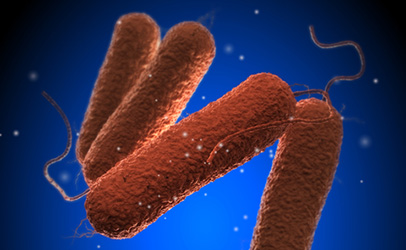 A food safety team at Montreal’s McGill University has been awarded $10 million for a study intended to answer remaining questions about Salmonella and how food growers can better prevent its contamination. The research team, led by McGill Food Safety Associate Professor Lawrence Goodridge, Ph.D., will first sequence the genomes of 4,500 isolates from the 2,500 known Salmonella serotypes — a process that will take more than a year. Of the 2,500 known serotypes of Salmonella, only about two dozen cause the vast majority of illnesses around the world. The goal of the study’s first phase will be to identify what makes those 25 or so virulent serotypes different from a genetic perspective. Comparing the genetic information from so many serotypes, Goodridge told Food Safety News that he hopes the study will answer questions concerning some of the bacterium’s traits, such as its ability to sicken people via dry foods that don’t seem to foster the growth of other types of bacteria. The information should also help food growers and food safety researchers develop new ways to tackle Salmonella on produce in the field. It will also allow for the development of more comprehensive diagnostic tests for Salmonella, as well as better methods for tracking the food source in the case of a Salmonella outbreak. The project officially kicks off in October, although the team’s preliminary work has already begun. The full study is expected to take four years to complete. “Certainly, in the next four years, there’s going to be a lot of work in the laboratory,” Goodridge said. The $10-million grant was awarded through Genome Canada, a non-profit organization that supports the use of genomic technologies to solve economic and social problems. An estimated 93 million people worldwide are sickened by Salmonella each year. Next week, Food Safety News will feature a video interview with Goodridge discussing the project in more detail. (To sign up for a free subscription to Food Safety News, click here.)
A food safety team at Montreal’s McGill University has been awarded $10 million for a study intended to answer remaining questions about Salmonella and how food growers can better prevent its contamination. The research team, led by McGill Food Safety Associate Professor Lawrence Goodridge, Ph.D., will first sequence the genomes of 4,500 isolates from the 2,500 known Salmonella serotypes — a process that will take more than a year. Of the 2,500 known serotypes of Salmonella, only about two dozen cause the vast majority of illnesses around the world. The goal of the study’s first phase will be to identify what makes those 25 or so virulent serotypes different from a genetic perspective. Comparing the genetic information from so many serotypes, Goodridge told Food Safety News that he hopes the study will answer questions concerning some of the bacterium’s traits, such as its ability to sicken people via dry foods that don’t seem to foster the growth of other types of bacteria. The information should also help food growers and food safety researchers develop new ways to tackle Salmonella on produce in the field. It will also allow for the development of more comprehensive diagnostic tests for Salmonella, as well as better methods for tracking the food source in the case of a Salmonella outbreak. The project officially kicks off in October, although the team’s preliminary work has already begun. The full study is expected to take four years to complete. “Certainly, in the next four years, there’s going to be a lot of work in the laboratory,” Goodridge said. The $10-million grant was awarded through Genome Canada, a non-profit organization that supports the use of genomic technologies to solve economic and social problems. An estimated 93 million people worldwide are sickened by Salmonella each year. Next week, Food Safety News will feature a video interview with Goodridge discussing the project in more detail. (To sign up for a free subscription to Food Safety News, click here.)
Sponsored by Marler Clark
